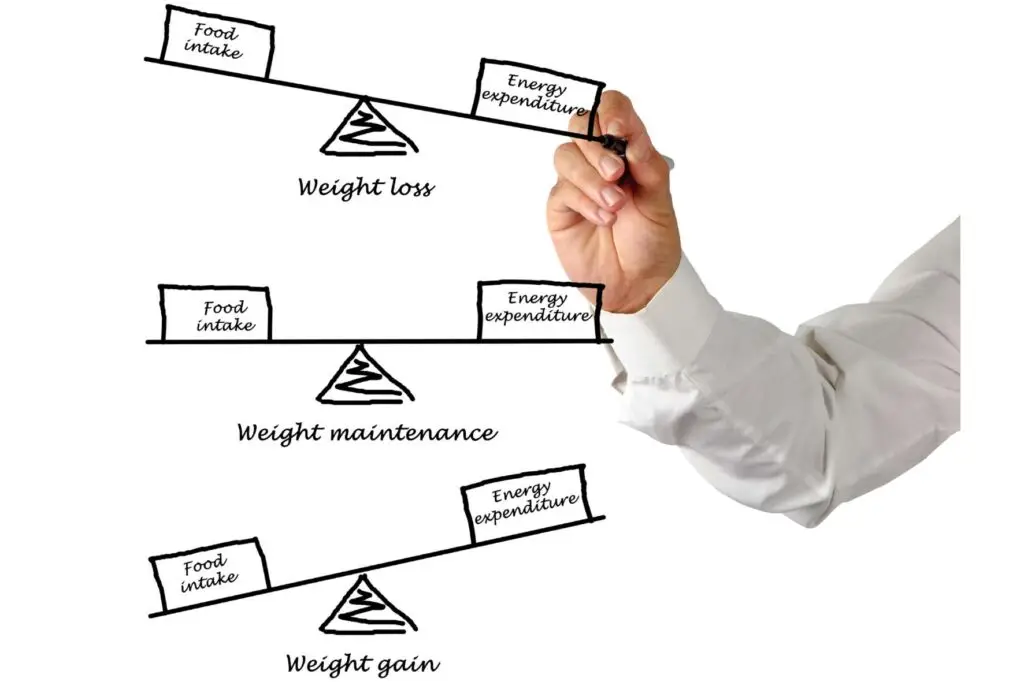Obesity and being overweight are significant contributors to a range of chronic diseases, including cardiovascular conditions such as heart disease and stroke, which are among the leading causes of death worldwide.
Additionally, excess weight is associated with non-communicable diseases, including diabetes and certain types of cancer, such as endometrial, breast, and colon cancer. Beyond the physical health implications, these conditions also profoundly affect quality of life, leading to decreased productivity and increased absenteeism.
Table of Contents
Is obesity & being overweight preventable?
The answer is a resounding yes!

It begins with understanding the concept of energy balance—the relationship between calories consumed and calories burned. Establishing a sustainable lifestyle routine focused on fat loss requires careful planning and a deep understanding of your body’s needs.
Which areas should you focus on to prevent obesity?
To answer this you may need a set structure to fall back on and overall you may need to have strong fundamentals in place to understand how our body mechanism works.
Below are 5 fundamentals that you need to know to break the cycle of obesity.
1. Creating a Calorie Deficit
To lose weight, you need to create a calorie deficit; this means consuming fewer calories than your body burns.
While calculating your Basal Metabolic Rate (BMR) and Total Daily Energy Expenditure (TDEE) is essential, it’s equally important to assess your current dietary habits.
Start by reviewing your diet history to estimate your current caloric intake. Remember, creating a calorie deficit is not just about the numbers; food choices play a crucial role in your success. Aim to include adequate protein in your diet — about 0.8 grams per kilogram of body weight.
Since the Indian diet is often carbohydrate-heavy, pay special attention to your protein intake initially, as sudden changes can lead to digestive issues. Once you’ve determined your protein sources, you can adjust your carbohydrate and fat intake based on your food preferences to prevent being overweight.

Key Takeaway
Don’t completely restrict foods you enjoy, like your morning tea, controlled portions with planned body movements prevent you from being overweight. Allowing small indulgences helps with adherence and accountability to your plan.
2. Focus on Fat Loss, Not Just Weight Loss
When you’re in a calorie deficit, weight loss can occur, but it may include muscle loss as well. To ensure that your weight loss is primarily fat, incorporate resistance training into your routine. This not only helps maintain muscle mass but also enhances your overall body composition.
Include Extra Activities
In addition to structured workouts, engage in low-intensity cardio activities like walking or brisk walking. These activities not only burn calories but also contribute to overall wellness.
3. Addressing Social Influences and Environment
Your social environment can significantly impact your lifestyle changes. Friends, family, and cultural norms may support or undermine your healthy habits, and add up to your journey of being overweight.
For instance, if social gatherings center around unhealthy foods or sedentary activities, it can be tough to stick to your new diet or exercise plan.
Building a supportive network is crucial for overcoming these social challenges. Communicate your goals with those around you, and seek their support.

4. Navigating Information Overload
With an overwhelming amount of health information available, it’s easy to feel confused by conflicting advice on diets and exercise. This information overload can lead to indecision and frustration.
Be cautious of diets that may be misleading. Seeking professional help from a coach or nutritionist can simplify your journey. They can provide personalized guidance and help you stay on track toward your goals.
5. Embracing a Sustainable Mindset
Recognize that the journey to a healthier lifestyle is filled with challenges. Acknowledging and addressing these obstacles is crucial for long-term success. Develop strategies to overcome barriers, seek support, and maintain a long-term perspective on your health.

Important Reminder
Losing weight isn’t just a goal; it’s about understanding why this lifestyle change is essential.
Educating yourself on the risks associated with obesity can reinforce your commitment to maintaining weight loss. It’s crucial to recognize that this journey is not merely a temporary process but a fundamental shift in how you approach your health and well-being.
Additionally, weight loss represents a significant behavior change, and the likelihood of rebound is higher when these changes are not sustained. Behavior change isn’t easy; it requires time, effort, and a willingness to adapt. Instead of searching for shortcuts, focus on sustainability. Develop habits that you can maintain in the long run, making this journey a way of living rather than a fleeting endeavor





13 Comments
[…] to manage weight and prevent obesity—packed with practical tips and science-backed strategies. Click here to read the full […]
[…] if you’re looking for practical strategies to manage your weight and fight obesity, click here for proven strategies to manage weight and enhance […]
[…] Also if you need actionable tips to prevent being overweight then read our detailed article on the same by clicking the link here. […]
This is quite informative. The mention of the Indian diet being calorie heavy got me wondering how People on the Indian diet and wanting to lose weight can still achieve that? Is it possible? Maybe a good one for another blog post?
Thank you for your comment! I appreciate your suggestion, and we will come up with a blog post on this topic. Stay tuned!
Thank you for providing such valuable insights and actionable advice! This is a fantastic resource for anyone looking to improve their diet and overall health. Keep up the great work!
Thank you for your kind words! We’re glad you found the advice helpful.
In today’s fast-paced world, maintaining our health can be quite challenging, especially when it comes to diet. Diet is one of the most significant factors contributing to weight gain and obesity, among others. With our busy, sedentary lifestyles, it can often feel daunting to think about dieting or losing weight. Many people perceive it as a time-consuming process that may not always be affordable.
However, this article captures the essence of how simple it can be to make positive changes. It provides clear guidelines on how we can initiate the weight loss process using the foods we already consume daily. It’s essential to understand that achieving a healthier weight doesn’t require drastic measures; rather, a few simple steps and strong determination can make a significant difference.
Thank you for this insightful blog. I hope it inspires many people to embark on their weight loss journeys and lead healthier lives.
Thank you for your thoughtful comment! we’re glad you found the article insightful. Your support is greatly appreciated!
Great post! I love how you covered all lifestyle choices , social influence and sustainable mindset.
It’s a balanced perspective with practical advice that anyone can follow. Very informative and encouraging.
Thank you for your generous feedback! We’re glad you found the post informative and balanced. If you have any additional insights or tips, we’d love to hear them!
Very nice and informative. Management and prevention of Obesity is one of the major priorities of current as it is associated with several diseases and undesirable health outcomes.
Thank you for your comment! We agree that managing and preventing obesity is a top priority due to its association with various health issues.